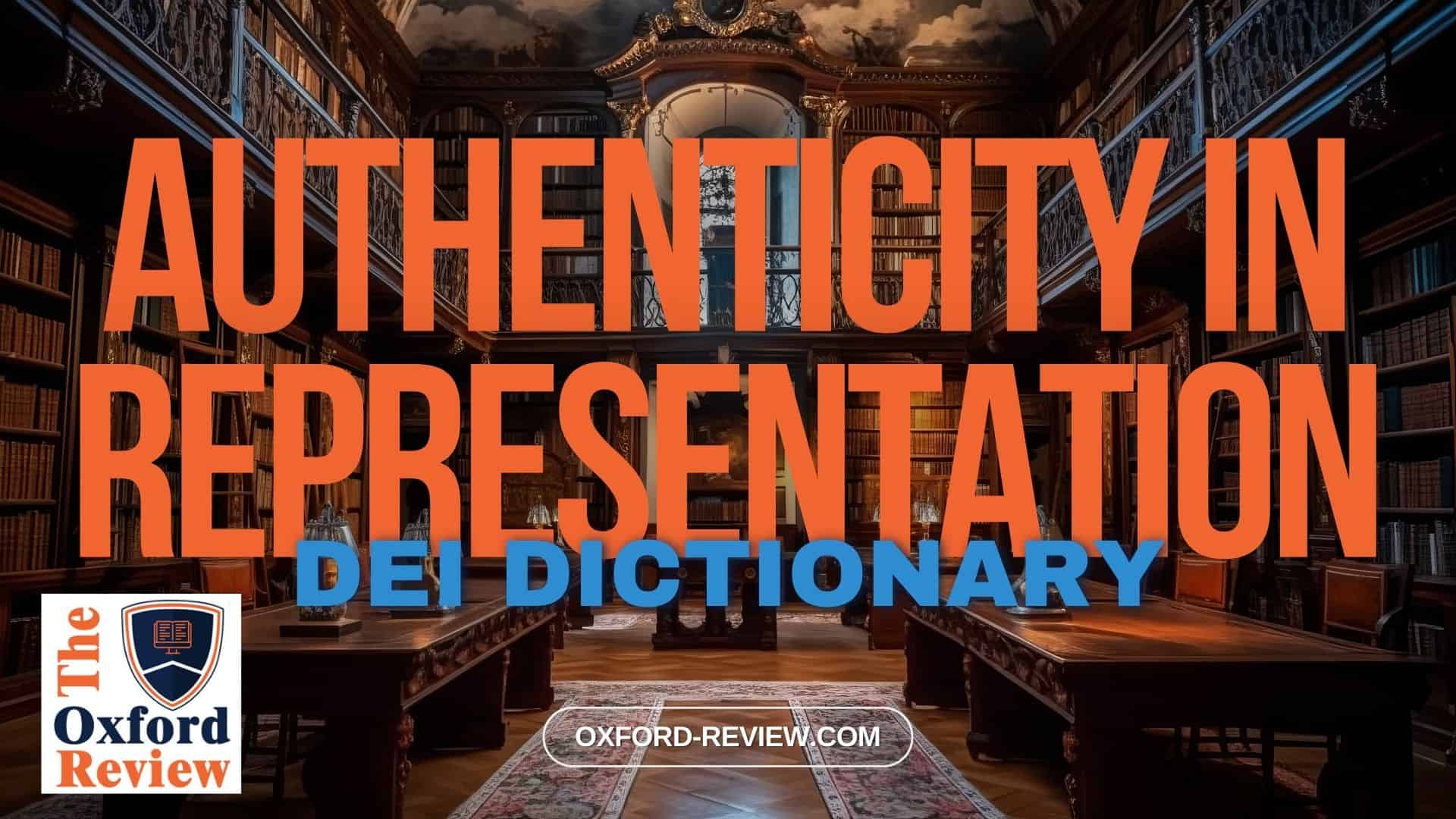Authenticity in Representation – Definition and Explanation

Authenticity in Representation: The Cornerstone of Meaningful Diversity and Inclusion
In the sphere of Diversity, Equity, and Inclusion (DEI), authenticity in representation serves as a fundamental principle. It encapsulates the essence of genuine portrayal and acknowledgment of diverse identities, experiences, and perspectives.
Definition:
Authenticity in representation refers to the accurate, respectful, and truthful portrayal of individuals, communities, and their experiences across various platforms, including media, organisations, and societal narratives. It entails going beyond surface-level diversity checkboxes and embracing the multifaceted nature of identity with sincerity and integrity.
Why Authenticity Matters:
Authentic representation fosters a sense of belonging and validation among underrepresented groups, affirming their existence and contributions. It dismantles stereotypes and biases, promoting empathy, understanding, and inclusivity. Moreover, it cultivates trust and credibility, enhancing relationships between organisations, brands, and their diverse stakeholders.
Examples:
- Film and Television: The critically acclaimed movie “Crazy Rich Asians” garnered praise for its authentic portrayal of Asian characters and culture. By hiring a predominantly Asian cast and crew and staying true to the nuances of the Asian experience, the film resonated deeply with audiences worldwide, challenging Hollywood’s traditional norms and setting a new standard for inclusive storytelling.
- Corporate Leadership: Companies like Microsoft have made strides in promoting authenticity in representation within their leadership ranks. Through initiatives like the Diversity & Inclusion Report and inclusive hiring practices, Microsoft showcases a commitment to diverse leadership that reflects the global community it serves. This authenticity not only enhances employee morale and innovation but also strengthens the company’s reputation as a socially responsible corporate entity.
Conclusion:
Authenticity in representation is not merely a buzzword; it’s a guiding principle for creating a more equitable and inclusive society. By embracing authenticity in our narratives, media depictions, and organisational practices, we pave the way for genuine connections, mutual respect, and transformative change. Let’s strive to authentically represent the rich tapestry of human experiences and identities, ensuring that everyone feels seen, heard, and valued.
Be impressively well informed

Get the very latest research intelligence briefings, video research briefings, infographics and more sent direct to you as they are published
Be the most impressively well-informed and up-to-date person around...
